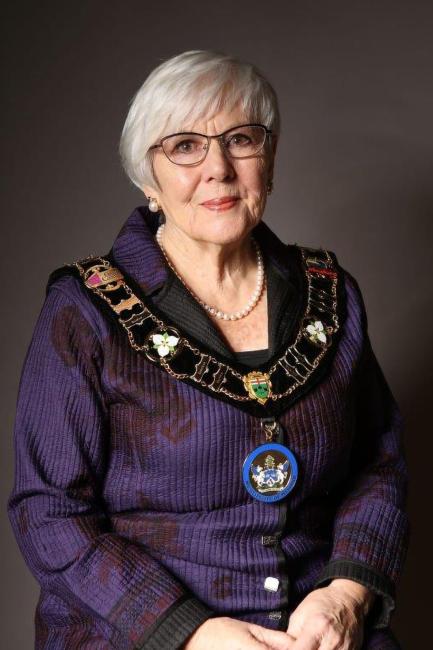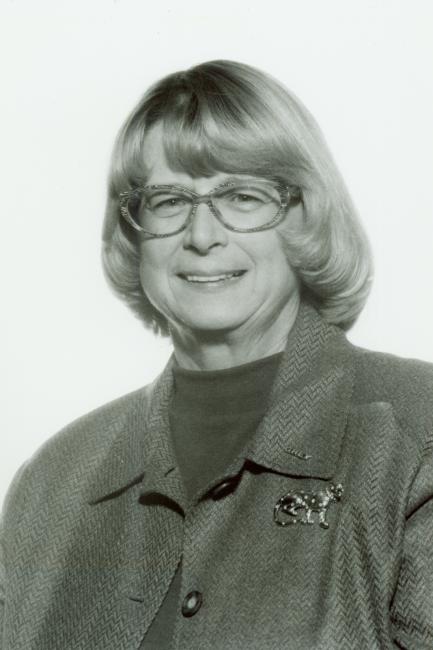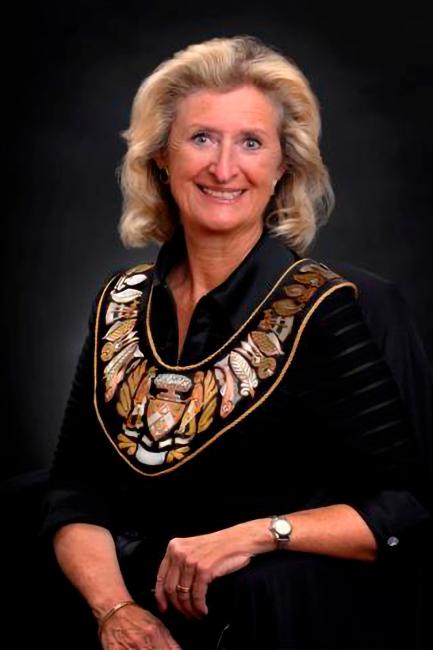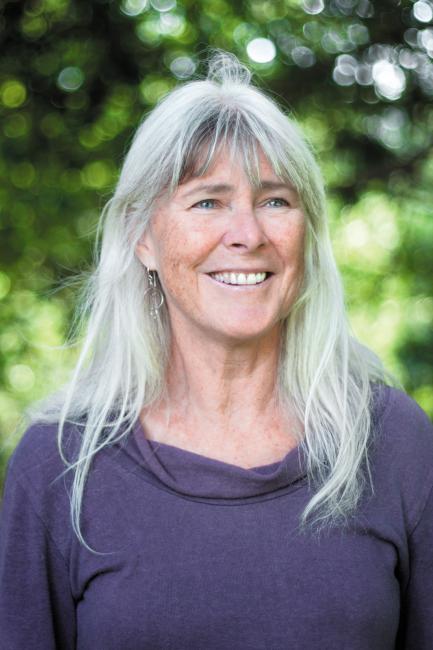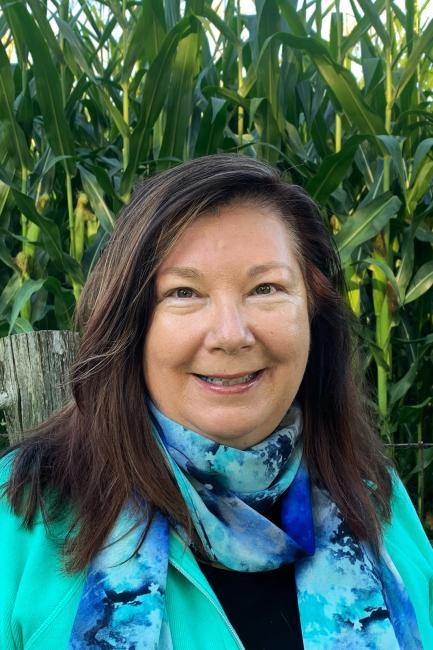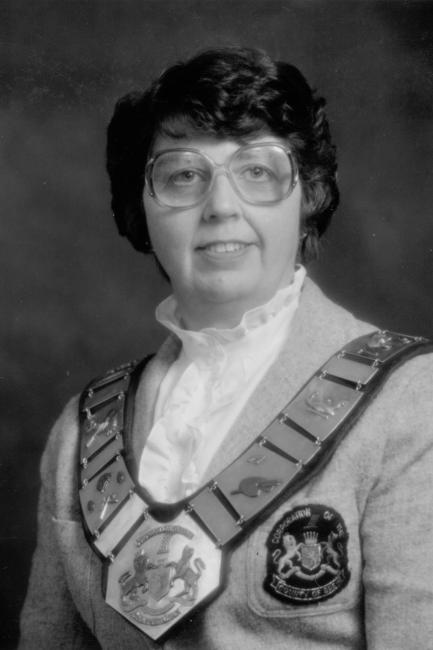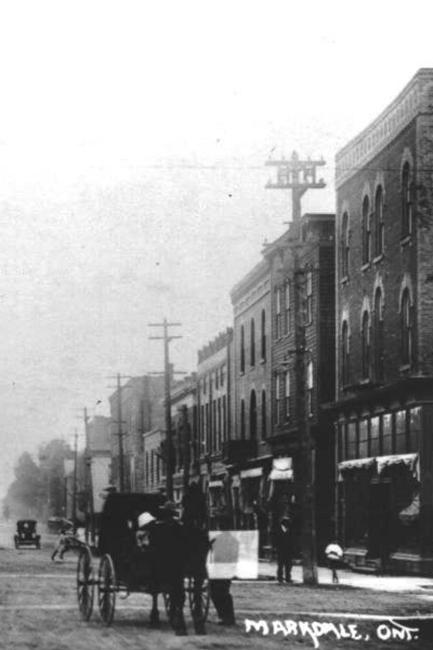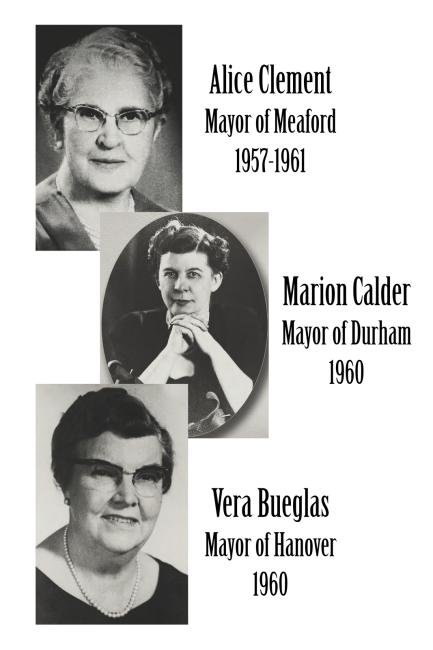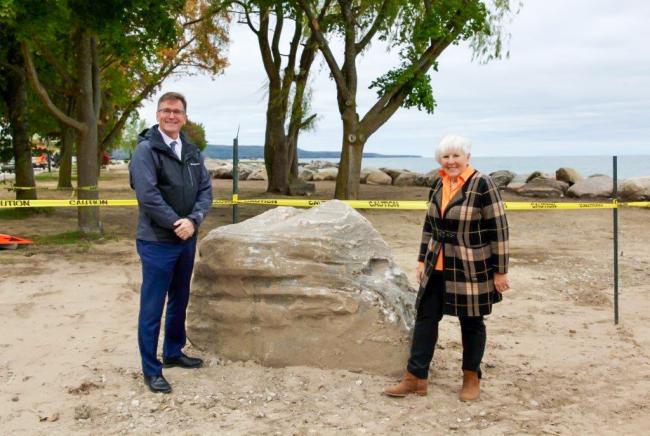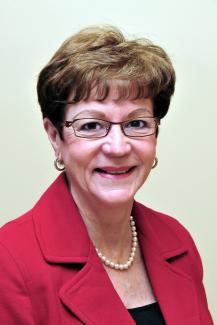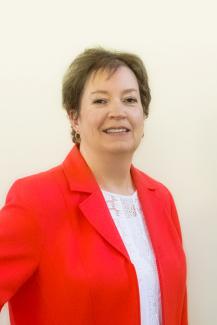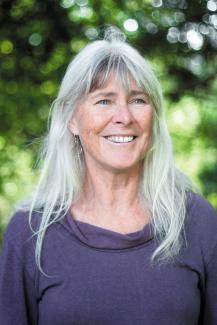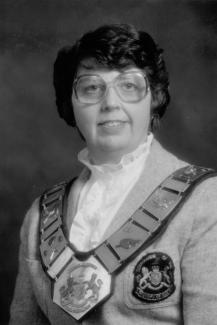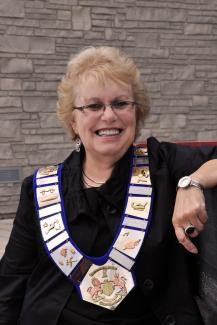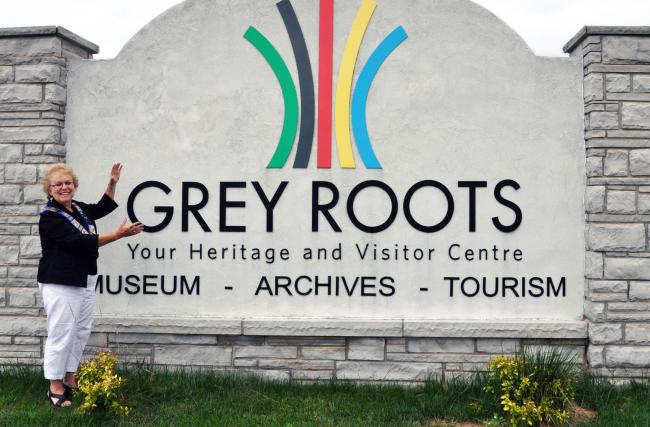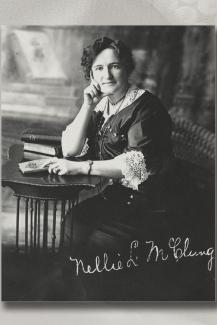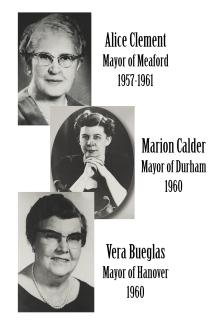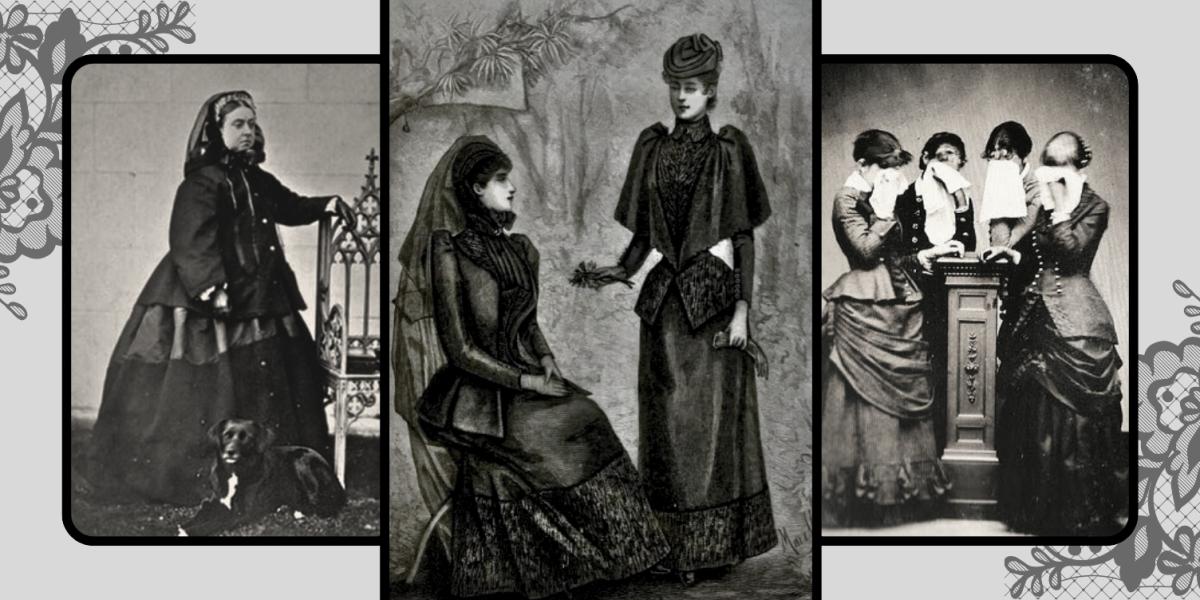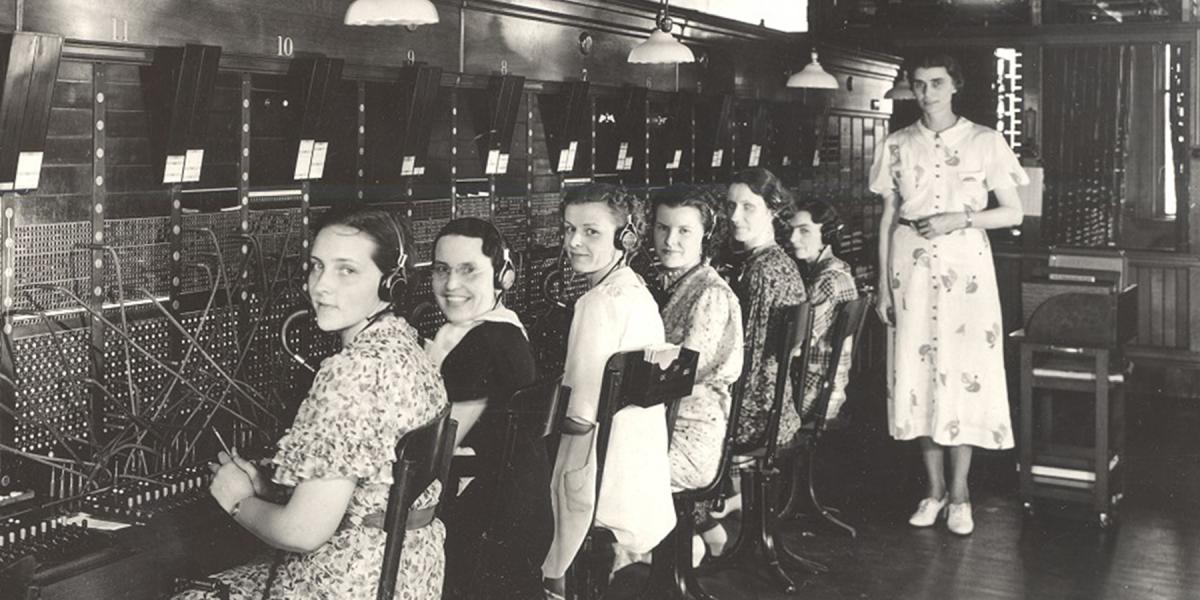
Barb Clumpus, Mayor of the Municipality of Meaford 2014-2022
After scouring Grey County for their “forever home”, Barb Clumpus and her husband fell in love with the Meaford area when they moved from Sudbury in 1998. With a professional background in social services, she served as the Executive Director of the Northern Cancer Research Foundation in Sudbury, however she says her awareness of the importance of community involvement is directly related to moving frequently growing up as part of a military family. Through living in different countries and travelling as an adult she says the world has given her a unique perspective on rural and national issues that are common to human beings everywhere, which she has really taken to heart [see audio clip 1 below text].
Clumpus says Meaford’s close-knit community was instantly apparent and that she felt immediately accepted in her first long-term home. Within a short time of settling in, she began volunteering with local groups, becoming Chair of the Meaford Chamber of Commerce and then Founding Chair of the Meaford Hall and Culture Foundation where she worked alongside volunteers and Meaford municipal administration. This led to the next step, running for Council in 2010, “to help make those big decisions”. She succeeded, and in 2014, became the Mayor of the Municipality of Meaford.
She says that campaigning was enjoyable because she and her husband met lots of rural residents, and discovered the many historical settlements, hamlets and crossroads that still leave their indelible mark on the vastness of the municipality. One of her proudest achievements was to lead the development of a Coat of Arms which represents the amalgamation of two former townships, St. Vincent and Sydenham and the Town of Meaford and which the Governor General of Canada, David Johnston, presented to the community in 2016.
While working with the United Way of Peel Region, in the early 1990s, Clumpus was inspired by many women who played senior roles in public administration including Hazel McCallion, then Mayor of Mississauga. Most of her colleagues who held the top roles in social services were women who demonstrated extraordinary work ethic, commitment, skill sets and compassion, in addition to the desire to deliver quality service to the people of their community.
Asked about the number of women in politics and senior administrative positions in Grey County and at the local level, Clumpus says she has been “so impressed” with the women councilors on County Council, and particularly with the administrative staff [see audio clip 2 below text]. She says, “I think there may be more educational opportunities and support systems now for women who are interested in senior positions and politics, but there are still challenges as they successfully navigate family and work life balance.” She believes that women “bring a world of experience and the necessary skills to the art of governance at all levels.”
She feels the most important qualities of a leadership role in governance include skillful listening and compromise, experience, compassion, and the desire to be of service. Whether it be municipal governance or the larger political world “You have to have that desire to help. You have to be engaged. Already in.”
Clumpus thinks that a way to encourage more young women to enter politics is to engage them early – at the high school level through an association with student councils or via youth service programs. She also thinks it's imperative that women in leadership roles set an example and look for opportunities to share experiences and to connect with young women.
Her commitment “to always go the extra mile” comes from her father who was in her words, “a great volunteer.” His philosophy was there are those, who, for various reasons, can’t do their fair share, so responsibility rests with the able. It’s something Clumpus has lived by ever since and applies to her everyday life.
Next to the pandemic, the most challenging obstacle in Clumpus’ political career was the municipality’s 2010 deficit and implementing the strong financial recovery plan that was necessary to move forward, to restore funding capabilities, and replenish reserves. Along with that came the need to rebuild trust between the public, councilors and municipal staff who she describes as “our greatest assets…[T]he worker bees of the municipality.” She says the rebuilding has taken a long time and a lot of hard work, but we are now crossing the bridge all together in the best interests of the residents.
Mayor Clumpus speaks of managing the learning curve of becoming Mayor and sitting on County Council as a very challenging but rewarding experience. She is proud of being part of “a very well organized, impactful organization that has the best interests of the whole of Grey County at heart.” At the municipal level, Meaford’s new library and K-12 school, the progressing infrastructure renewal, and the recently approved Community Safety and Wellbeing Plan and Focus on Accessibility all count as significant achievements.
See audio clip 3 for Mayor Clumpus’ advice to young women entering politics.


